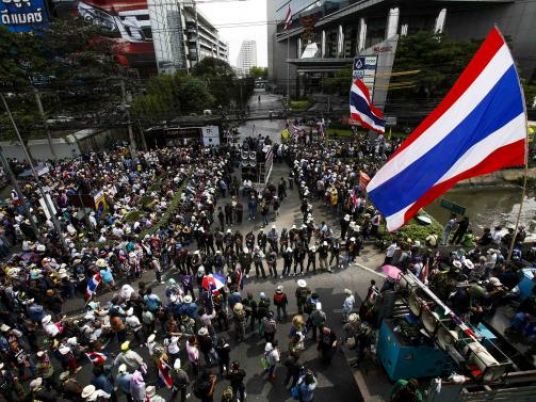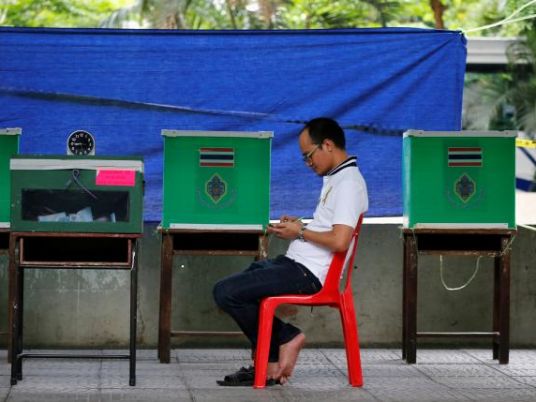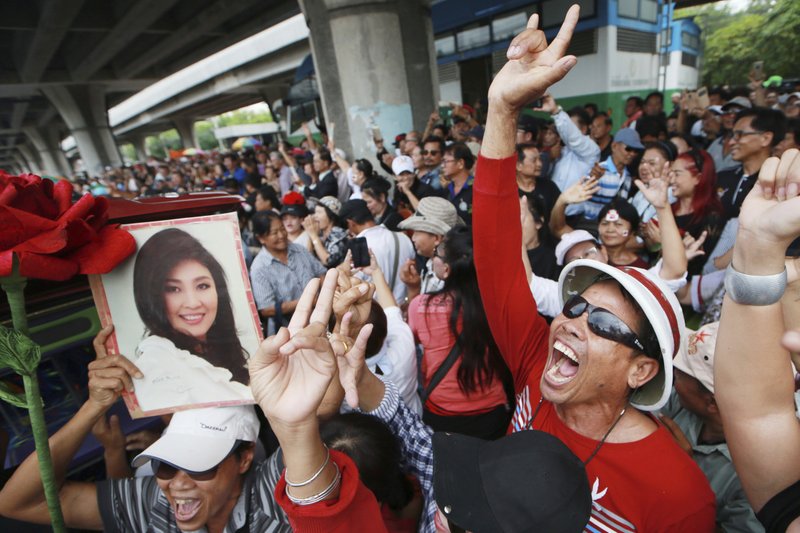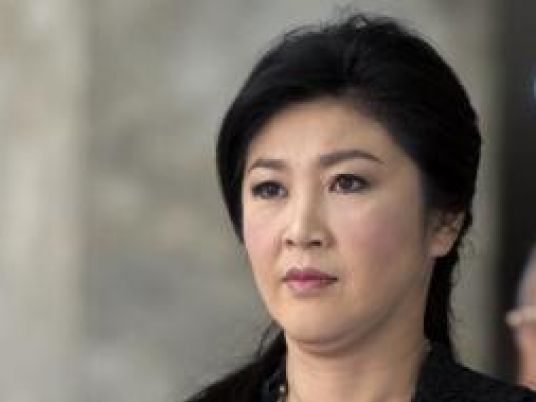
Thousands of pro-government "Red Shirts" massed in Thailand's capital Saturday to challenge attempts by opposition protesters to hand power to an unelected regime, warning that the kingdom was lurching towards "civil war".
The dismissal of prime minister Yingluck Shinawatra and nine ministers by the Constitutional Court this week for the improper transfer of a top security official has plunged the restive kingdom deeper into crisis.
Officials said about 3,000 police officers were on standby for the pro-government rally on the western outskirts of Bangkok on Saturday, with turnout expected to peak in the evening.
Holding aloft portraits of Yingluck, the red-clad movement said it would keep up the protest for as long as it deemed necessary to defend the wounded administration.
"The Red Shirts cannot accept the undemocratic and unconstitutional appointment of a prime minister," said chairman Jatuporn Prompan, denouncing a call by the opposition for judges, the Senate president and other prominent figures to choose a new premier.
"It would be the beginning of a disaster for the country that will lead to civil war," he said.
Opposition demonstrators are gearing up to try to deliver a knock-out blow to the remnants of the government, to enable an unelected leadership to take the reins of the Southeast Asian nation and oversee vague reforms they say would tackle corruption.
Such a move would infuriate supporters of Yingluck and her elder brother Thaksin Shinawatra, a former premier who was deposed by royalist generals in a coup in 2006, an event that ushered in years of political turmoil.
A military crackdown on Red Shirt protests against the previous government left dozens dead in central Bangkok in 2010.
Coup fears
The spectre of the military seizing power also looms constantly over Thailand, which has seen 18 successful or attempted coups since 1932.
"The government is spending its energies hoping to keep military action at bay," said Paul Chambers, director of research at the Institute of South East Asian Affairs at Chiang Mai University.
"I am afraid an army coup could be approaching," he added.
Political violence has left at least 25 people dead and hundreds wounded in gun and grenade attacks by shadowy assailants in recent months, mostly targeting opposition demonstrators.
The fear is that armed elements on both sides of the political divide could seek to incite further unrest.
The anti-government protesters want the upper house of parliament — almost half of whose members are unelected — to remove the weakened cabinet, including the caretaker Prime Minister Niwattumrong Boonsongpaisan, a Thaksin loyalist.
In a speech on Saturday, protest leader Suthep Thaugsuban urged the appointment of an unelected leader "immediately", saying that Niwattumrong had no legitimacy.
But critics say the call for the Senate and other prominent figures to choose a new prime minister has no legal basis.
Thai courts have removed three prime ministers linked to Yingluck's family, who have won every election completed since 2001.
The last round of polls held in February was voided after disruption by opposition protesters and the results were never announced.
Years of instability
The backdrop is an eight-year struggle between a royalist establishment — supported by parts of the judiciary and the military — and the Shinawatra family, whose popularity shook up a traditional social order headed by the king and supported by the Bangkok-based elite.
Some observers believe that behind the scenes a struggle is playing out to decide who will be in charge of the country when revered but ailing 86-year-old King Bhumibol Adulyadej's more than six-decade reign eventually ends.
Thaksin lives in Dubai to avoid jail for a corruption conviction that he says was politically motivated, but he is accused by his opponents of clinging to power through his political allies at home.
The billionaire tycoon-turned-politician is popular among many people in northern Thailand thanks to his policies aimed at rural voters, but hated by many southerners and members of the Bangkok-based elite and middle classes.
The government wants to press ahead with a planned July 20 election but the new poll date has yet to be endorsed by a royal decree and critics have accused poll officials of siding with the opposition.
The unrest has dealt a blow to "teflon" Thailand's traditionally resilient economy as tourist arrivals fall and foreign investors watch nervously.




